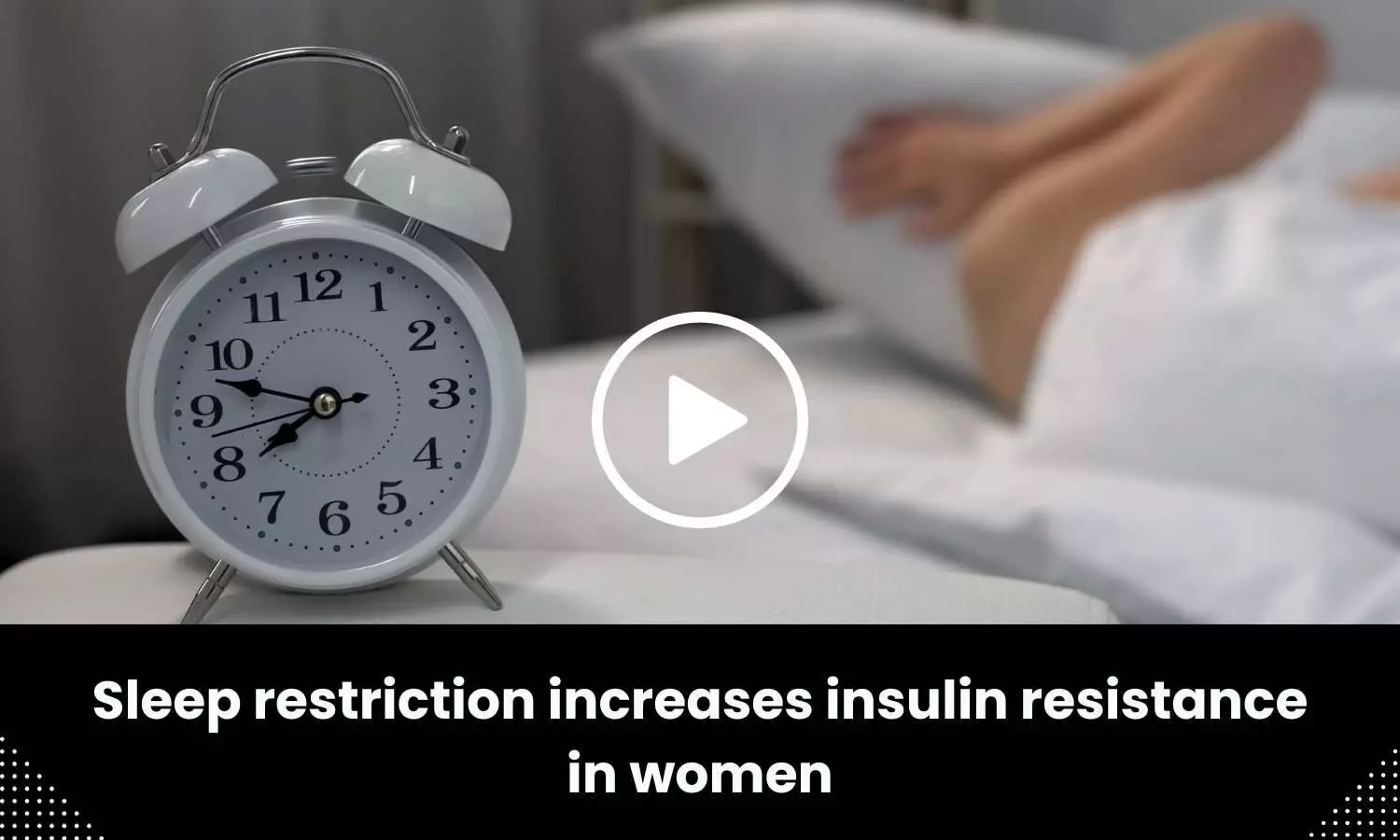- Home
- Medical news & Guidelines
- Anesthesiology
- Cardiology and CTVS
- Critical Care
- Dentistry
- Dermatology
- Diabetes and Endocrinology
- ENT
- Gastroenterology
- Medicine
- Nephrology
- Neurology
- Obstretics-Gynaecology
- Oncology
- Ophthalmology
- Orthopaedics
- Pediatrics-Neonatology
- Psychiatry
- Pulmonology
- Radiology
- Surgery
- Urology
- Laboratory Medicine
- Diet
- Nursing
- Paramedical
- Physiotherapy
- Health news
- AYUSH
- State News
- Andaman and Nicobar Islands
- Andhra Pradesh
- Arunachal Pradesh
- Assam
- Bihar
- Chandigarh
- Chattisgarh
- Dadra and Nagar Haveli
- Daman and Diu
- Delhi
- Goa
- Gujarat
- Haryana
- Himachal Pradesh
- Jammu & Kashmir
- Jharkhand
- Karnataka
- Kerala
- Ladakh
- Lakshadweep
- Madhya Pradesh
- Maharashtra
- Manipur
- Meghalaya
- Mizoram
- Nagaland
- Odisha
- Puducherry
- Punjab
- Rajasthan
- Sikkim
- Tamil Nadu
- Telangana
- Tripura
- Uttar Pradesh
- Uttrakhand
- West Bengal
- Medical Education
- Industry
Sleep restriction increases insulin resistance in women
Overview
A study funded by the National Institutes of Health has found that chronic insufficient sleep can increase insulin resistance in otherwise healthy women, with more marked effects in postmenopausal women. The findings highlight the importance of adequate sleep in minimizing the risk for type 2 diabetes.
What is sleep restriction?
Sleep restriction is when you don't get enough sleep. It can be caused by a variety of factors, including stress, work, and travel. Sleep restriction can have a number of negative health consequences, including an increased risk of type 2 diabetes.
What is insulin resistance?
Insulin resistance is a condition in which your body's cells do not respond properly to insulin. Insulin is a hormone that helps your body use glucose for energy. When your cells are resistant to insulin, your body has to produce more insulin to regulate blood sugar levels. This can lead to type 2 diabetes.
The current study enrolled only women and sought to determine if a prolonged, mild restriction of sleep – a reduction of just 1.5 hours each night – increased women's blood glucose and insulin levels.
The researchers found that restricting sleep to 6.2 hours or less per night over six weeks increased insulin resistance by 14.8% among both pre- and postmenopausal women, with more severe effects for postmenopausal women – as high as 20.1%.
Reference: Zuraikat FM, et al. Chronic Insufficient Sleep in Women Impairs Insulin Sensitivity Independent of Adiposity Changes: Results of a Randomized Trial. Diabetes Care. 2023. https://doi.org/10.2337/dc23-1156
Speakers
Isra Zaman
B.Sc Life Sciences, M.Sc Biotechnology, B.Ed





